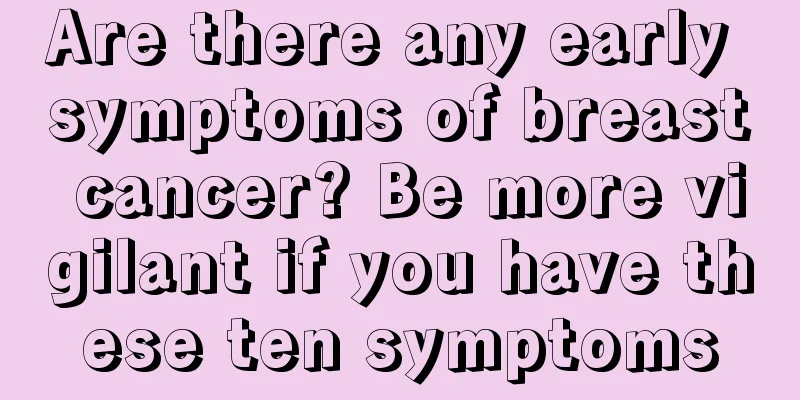What to do if the heart is not getting enough blood? Improve it with diet

|
In today's society, cardiovascular and cerebrovascular diseases have become more and more common. Insufficient blood supply to the heart is a common one. Severe cases can threaten the patient's life safety. The most important thing in treating this disease is daily diet. A reasonable diet can well control the disease. 1. What to do if the heart is not getting enough blood? 1. Myocardial insufficiency can be improved by the following suggestions: Control the intake of staple food and fat, ensure the supply of fresh vegetables and fruits to provide vitamin C, B vitamins and appropriate dietary fiber. Choose more beans and bean products, appropriately increase seafood, such as kelp, seaweed, etc., and try to use less animal liver, kidney, preserved eggs and other foods with high cholesterol and foods with high saturated fatty acids, such as fat, animal fat, cream, etc. Eat small meals frequently, avoid overeating, and do not eat too much for dinner, otherwise it is easy to induce acute myocardial infarction. Do not drink strong alcohol. Alcohol can speed up the heart rate and aggravate myocardial hypoxia, so alcohol should be avoided, etc. 2. Appropriately increase dietary fiber intake. Provide rich vitamins. Vitamin C can promote cholesterol to produce bile acid, thereby lowering blood cholesterol; 2. Symptoms of insufficient blood supply to the heart 1. Angina pectoris is a typical symptom of insufficient blood supply. Its main cause is acute myocardial ischemia. Usually, angina pectoris attacks are related to activities or getting up in the morning. They are mostly located in the precordial area or behind the sternum. They are compressive and can radiate to the left shoulder and teeth. They last for several minutes and can be relieved after rest. 2. Even if there is no chest pain, symptoms of arrhythmia may occur. 3. Angina pectoris can also occur outside the chest, manifesting as headache, toothache, sore throat, shoulder pain, and leg pain, which often needs to be differentiated from the discomfort caused by the corresponding organs. 4. A decrease in cardiac output leads to a decrease in blood supply to the brain. Severe arrhythmia also often leads to a decrease in blood supply to the brain. Therefore, when elderly people have cerebrovascular manifestations, an electrocardiogram should be performed and followed up in the short term. |
Recommend
Can butter be eaten directly?
Butter is something that people use a lot in thei...
What are the benefits of strontium to the human body
Strontium can be used to prevent osteoporosis in ...
Can colorectal cancer be cured by chemotherapy
Can colorectal cancer be cured by chemotherapy? C...
What are the symptoms of neurogenic cystitis?
The health of the urinary tract is a vital part o...
What are some tips for preventing nasopharyngeal cancer?
In recent years, nasopharyngeal cancer has become...
Can the cyst be rubbed away
Many people are familiar with cysts, which are ca...
What should I do if my white clothes are stained with tea?
People drink all kinds of tea. For example, in sp...
What should I do if there is too much hair down there?
Whether male or female, the pubic area will grow ...
90% of people have these diseases, do you believe it?
Today, I found a "comprehensive list of soci...
How long do I need to take medicine for lymph tuberculosis
After getting lymph node tuberculosis, the immune...
Can I eat Liangpi during confinement?
Liangpi is a famous specialty snack in Shaanxi. I...
How to treat tinnitus and blockage in the ears?
People will encounter a lot of unexpected events ...
What's going on with the bleeding white of the eye
Eyeball hemorrhage usually occurs in the white or...
Which kind of light is good for children's eyesight
Everyone should know that the myopia rate is grad...
What are the symptoms of lymph nodes
With the transition from spring to summer, people...









